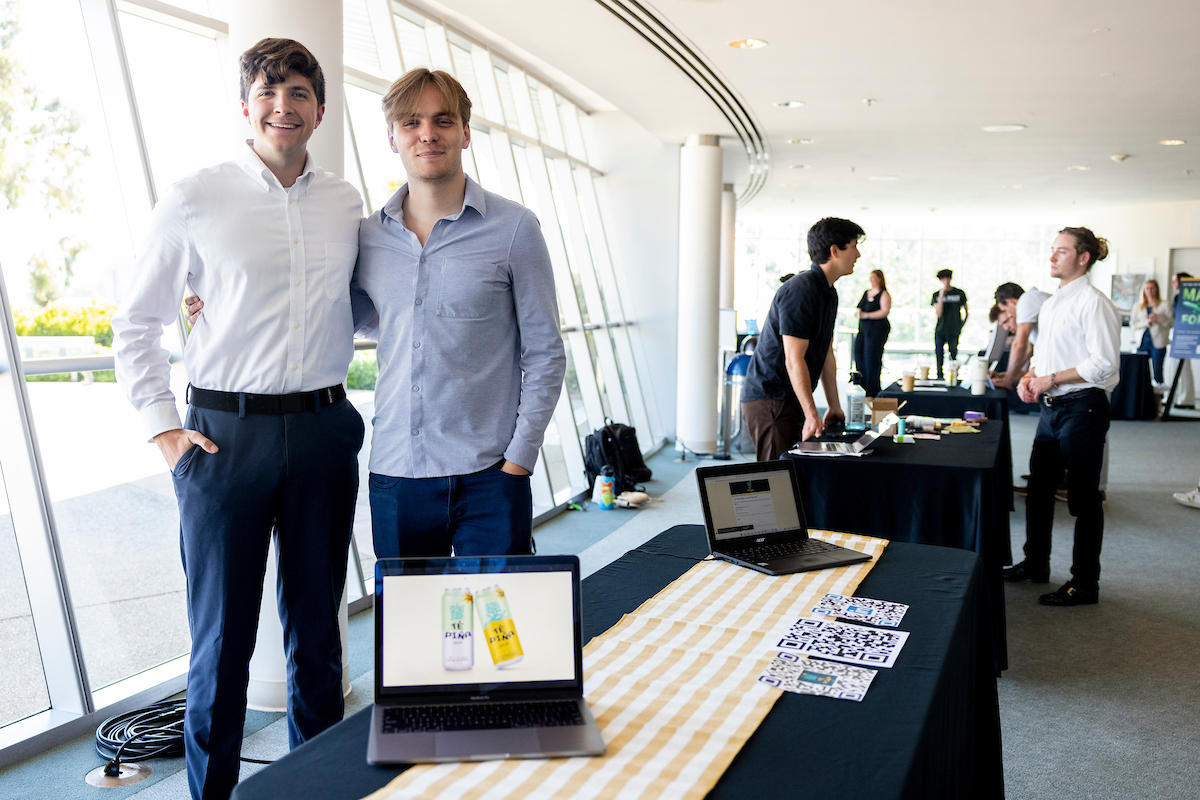Getting sick in college can seem inevitable. When students are living in close-quarters, sharing classroom spaces and constantly socializing with new people, germs are bound to spread.
Eighty-one percent of Cal Poly students will experience sickness at least once in a three-month span, according to business administration senior Matthew Reis. In fact, catching a sickness is so common at Cal Poly that students coined a term for the epidemic: the Poly Plague.
As a student and fraternity member at Cal Poly, Reis was in the midst of the college social scene. He experienced the anguish of the Poly Plague time and time again.
“I was very sick all the time just from normal college activities,” he said. “I was getting tonsillitis and a lot of inflammation. My second year, I contracted mono.”
Reis felt extremely frustrated with his persistent sickness and his inability to find a reliable cure. As a result, he took matters into his own hands and sought a solution.
Through some research, Reis came across a recipe for a pineapple tea that worked as a natural remedy for a cough and cold. After making the drink for himself, he noticed his respiratory symptoms decreasing quickly. He compared his results to over-the-counter (OTC) medicine, for instance, NyQuil, and realized how much more rejuvenated he felt.
Reis learned that OTC medicine simply suppresses one’s symptoms so people can sleep better, but does not truly contribute to a speedy recovery. Fortunately, because pineapples are packed with vitamins and minerals, they significantly support immunity.
Soon enough, Reis’s friends noticed the pineapple tea fighting his stubborn sickness and winning. They urged him to make the beverage for themselves so that they could also avoid dreadful college sicknesses.
“Eventually, I was thinking, it would be nice if I could make this something that I do, and other people benefited from,” Reis said.
That is when he came up with the idea for his startup Té Piña, a company creating a pineapple-based beverage with vitamins, minerals and anti-inflammatory agents intended to help people recover from and prevent respiratory illnesses.
Reis took his idea and pitched it at the 54-hour-long Cal Poly Entrepreneurs (CPE) event where developers, designers and innovators can meet for the first time and develop a business together. At the event, business administration senior Benjamin Arts watched Reis pitch and loved the idea.
Arts felt that Té Piña was a “product with meaning that could actually change someone’s life and make them feel better.”
After recognizing each other’s strong interest in Té Piña, they decided to become co-founders.
Reis and Arts aim to create the perfect combination of ingredients that will make Té Piña a better option than alternatives like ginger shots, tea refreshers and caffeinated drinks.
“Options such as Yerba Mate exist that provide customers with the facade of a healthy drink when in reality, it is just another energy drink. On the other side of the scale are health shots, where customers sacrifice taste for the benefits,” Reis explained. “Té Piña can fix customer’s pain by providing a beverage that is both healthy and delicious.”
Té Piña will be a beverage that is both mild in sugar content and adequate with the amount of caffeine, Reis said.
So, how does Té Piña do it? Pineapple skins. Pineapple skins are what they use as their primary immune booster as they are packed with nutrients and vitamin C, Reis said.
Feeling confident in their idea, the co-founders applied to the Center for Entrepreneurship and Innovation (CIE) Summer Accelerator, a 13-week extensive program that provides participants with mentorship, networking opportunities and $10,000 in seed funding to help grow their business. Té Piña was one of eight teams accepted into the program.
Reis explained that the CIE has been beneficial in helping him get in touch with the right people to get his idea off the ground.
“The CIE will support you and has the resources to bring you up and help you pivot and adapt. That’s how they develop you as an entrepreneur,” Reis said.
During the Summer Accelerator, the co-founders aim to finalize their recipe, establish a nutrition label and certify their product so they can sell Té Piña locally.
“I hope that we can make Té Piña accessible, available and affordable for all students to solve their Poly Plague problems,” Reis said.
Té Piña, along with the rest of the 2023 Summer Accelerator cohort, will pitch their startup and showcase their progress at Demo Day, on Sept. 8 at 4 p.m. at SLO Brew Rock. Tickets are available here.
